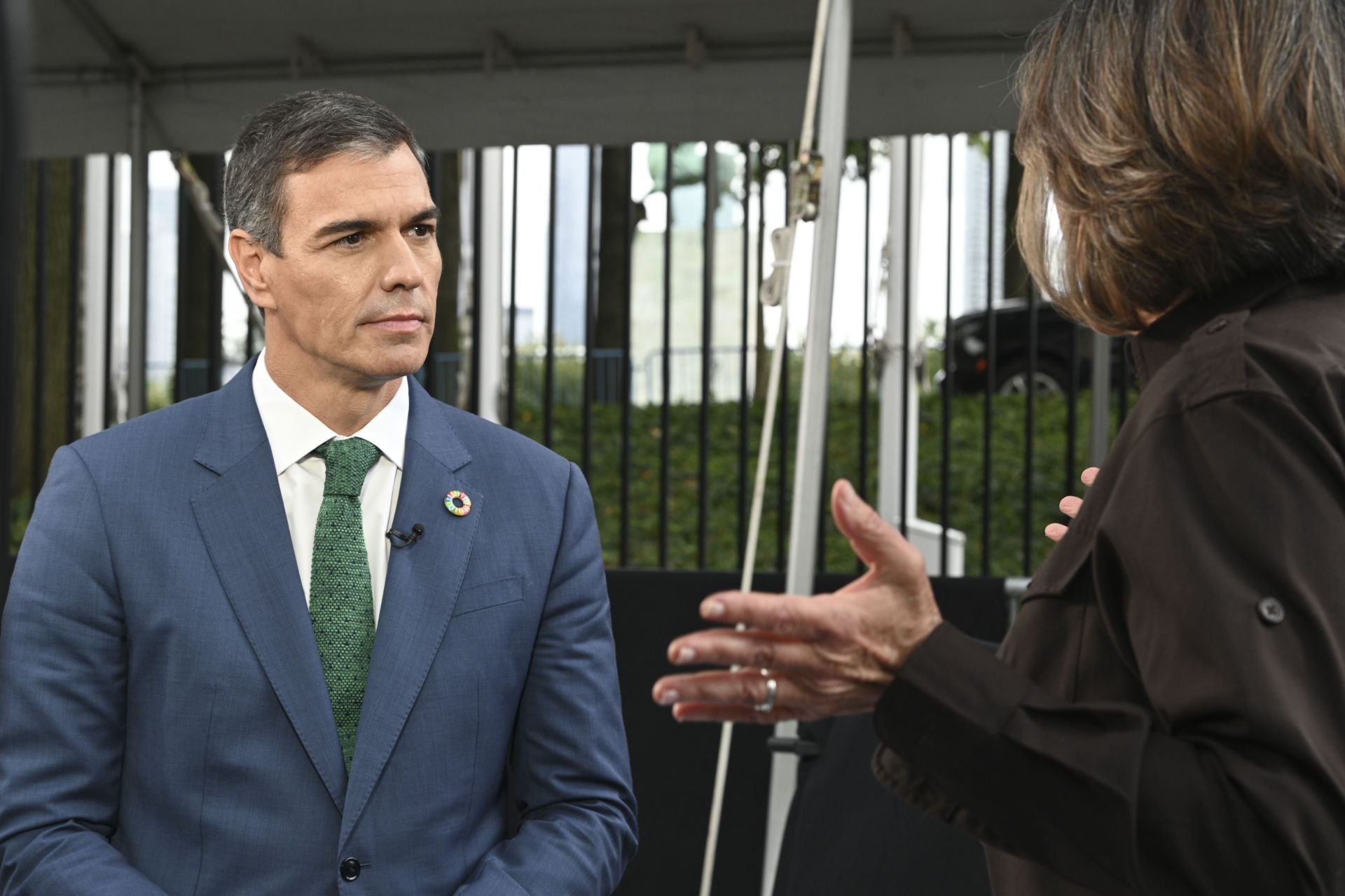A virtuoso performance
Speaking at the UN General Assembly, Spanish PM Pedro Sánchez criticised the "neoliberal dogma' of austerity - the economic approach favoured by his Conservative predecessor, Mariano Rajoy - and stressed the benefits of government spending
Mark Nayler
Malaga
Friday, 27 September 2024, 12:54
I do find politicians' speeches fascinating. Not always the content, which is often dull, but the way they spin a line, making complex topics sound ... simple and leaving out inconvenient facts to forge a (usually very positive) narrative. This is what Pedro Sánchez did this week in New York, to try and show "Spain is experiencing one of the best moments in decades".
Speaking at the UN General Assembly, Sánchez criticised the "neoliberal dogma' of austerity - the economic approach favoured by his Conservative predecessor, Mariano Rajoy - and stressed the benefits of government spending. The only way that European countries can "avoid falling behind in the most cutting-edge technological sectors", he argued, was to increase state expenditure and collaborate with the private sector.
To support this argument, Sánchez pointed to his own government, which he believes has been spectacularly successful in economic terms. As a self-congratulatory flourish, the PSOE leader added that his coalition has "made social peace a hallmark of Spain" and contributed to the reduction of inequality.
Not everything the PSOE leader said was misleading. Spain's GDP is in good health, indeed last year it grew five times faster than the eurozone as a whole and outpaced the economies of France and Germany. And yes, Sánchez's government has earmarked record sums for public spending since taking power in 2018, especially over the last three years, with the aid of the EU's 'Next Gen' funds.
But Sánchez's central claims - economies (and, ultimately, populations) benefit from high levels of government intervention and governments create wealth just as effectively as the private sector - are contentious.
According to one classic economic view, governments don't create wealth (unless they have sovereign wealth funds like Dubai, for example). Rather, their role is to set the base conditions in such a way that industry and entrepreneurship can thrive. Wealth creation is the private sector's job, and the less governments interfere with its activities, the better. Neoliberalism, essentially.
Of course Sánchez, as a Socialist, isn't going to defend an economic approach that's most often associated with Margaret Thatcher and Ronald Reagan. But neoliberalism is no more of a 'dogma' than interventionist economics - both have their pros and cons. Sánchez's government might pride itself on being more caring and cuddly than Rajoy's was, but it has been repeatedly criticised by the EU for ineffective public spending.
Sánchez glossed over the issues of equality and peace with a magician's sleight of hand. Spain (especially Andalucía) has a big unemployment problem and, according to Statista, is one of the most unequal nations in Europe. And when the prime minister talked of fostering ´"social peace", I immediately thought of the demonstrations that took place throughout the country against his amnesty for Catalan separatists. Still, in purely political terms, Sánchez gave a virtuoso performance in New York this week.
¿Tienes una suscripción? Inicia sesión
